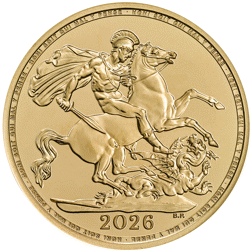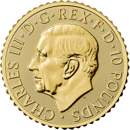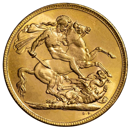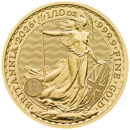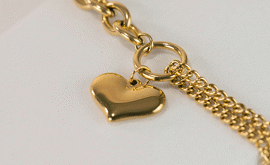Is Gold Exempt from Inheritance Tax?
Buying and selling gold has never been easier with bullion dealers like Atkinsons making it possible for investors and collectors to buy precious metals either in-store or online.
This easy accessibility, coupled with new records for gold prices being recently set, means that more and more people are looking at bullion as a way of investing.
But this begs the question, what are the tax implications of investing in gold? And, more specifically, is gold exempt from inheritance tax in the UK?
In this guide, we’re going to be looking at the different tax laws you need to be aware of before investing in bullion, particularly if you intend to use it as a way of transferring wealth to your children.
Capital Gains Tax on Gold Bullion
The first piece of legislation that you need to be aware of is Capital Gains Tax (often abbreviated to CGT). This is the tax law that defines how much is owed to HMRC when profiting from the sale of goods.
The term ‘capital gains’ refers to the amount of money made once the original purchase price has been taken into account. For example, if you buy a gold bar for £2,000 and sell it for £3,000 then your capital gains stand at £1,000. This is the taxable amount; not the full £3,000 you receive.
Now, there is a threshold currently in place under which no CGT is applied. For 2024/25, this stands at £3,000. This means that for the first £3,000 you earn per financial year as a result of selling items like bullion, you will not have to pay any CGT. For anything over that threshold, the tax applied stands at 10% if you pay basic income tax and 20% if you pay the higher rate.
Gold Coins and Capital Gains Tax
Although CGT is applicable in the manner outlined above, this only applies to non-legal tender. This means that although CGT applies when selling gold bars, when selling gold coins they may be exempt.
Any gold coins produced by The Royal Mint are considered legal tender. As such, they are exempt from capital gains tax and may be bought and sold freely. This applies no matter the volume or value of sales making it an attractive option to investors.
Inheritance Tax
Inheritance tax is tax paid to HMRC on the value of someone’s estate once they pass. A person’s estate consists of property, money and possessions left behind. There are, however, predefined thresholds in place whereby anything under that value qualifies as being tax-exempt.
There is usually no inheritance tax to pay if the value of a person’s estate is valued at less than £325,000. Anything above this threshold may be subject to inheritance tax. However, if the estate is left to a spouse or civil partner, no inheritance tax is due. If your home is given away to children, the threshold increases to £500,000.
Gold and Inheritance Tax
Buying and owning gold can be a tax-efficient and practical way to transfer wealth to loved ones, especially after death. Gold collections are considered to be private assets, meaning that, unlike equities, cars, or properties, there is no requirement to formally register ownership. It is important to note that ownership should be properly transferred and documented for legal purposes, especially when it comes to tax considerations.
Gold is a tangible asset that is often used to help preserve wealth, especially in the face of rising inflation and low interest rates, unlike leaving wealth in the bank, which may erode value over time.
UK residents can benefit from tax exemptions on gold coins such as Gold Britannias and Gold Sovereigns. These are not subject to Capital Gains Tax (CGT) when sold, and they also qualify for VAT exemption.
Many people looking to transfer wealth often choose to gift gold coins during their lifetime. Giving gold coins as Christmas or birthday presents can help distribute wealth within the £3,000 inheritance gift allowance., though larger gifts may still be subject to inheritance tax if the donor passes away within 7 years of the gift.
Summary: Is Gold Exempt from Inheritance Tax?
The short answer is no, gold is not fully exempt from inheritance tax (IHT). However, gold can provide some significant tax benefits, especially when it comes to capital gains and VAT. Gold coins produced by The Royal Mint, such as Gold Britannias and Gold Sovereigns, are exempt from both Capital Gains Tax (CGT) and VAT, meaning that if passed on, the recipient can sell them without incurring these tax costs on any potential gains.
While gold may not be exempt from inheritance tax, it can still be a beneficial way to transfer wealth, as the price of gold can increase over time. This means the inheritance you leave behind could continue to grow long after you are gone. Also, when gifting gold during your lifetime, it may be possible to reduce IHT exposure, particularly by using the annual gift exemption (£3,000), where applicable.
Why Join Our Mailing List?
By signing up, you'll gain access to exclusive updates, early announcements, and tailored insights into the world of bullion and precious metals.

Latest Updates On Bullion

New Releases

Special Offers

Market Analysis
This blog represents one person’s opinion only. Please note, gold and silver prices may go down as well as up. Atkinsons Bullion & Coins accepts no responsibility for any losses based on information we have provided. We do not offer investment advice. Please carry out your own research before making an investment decision.

